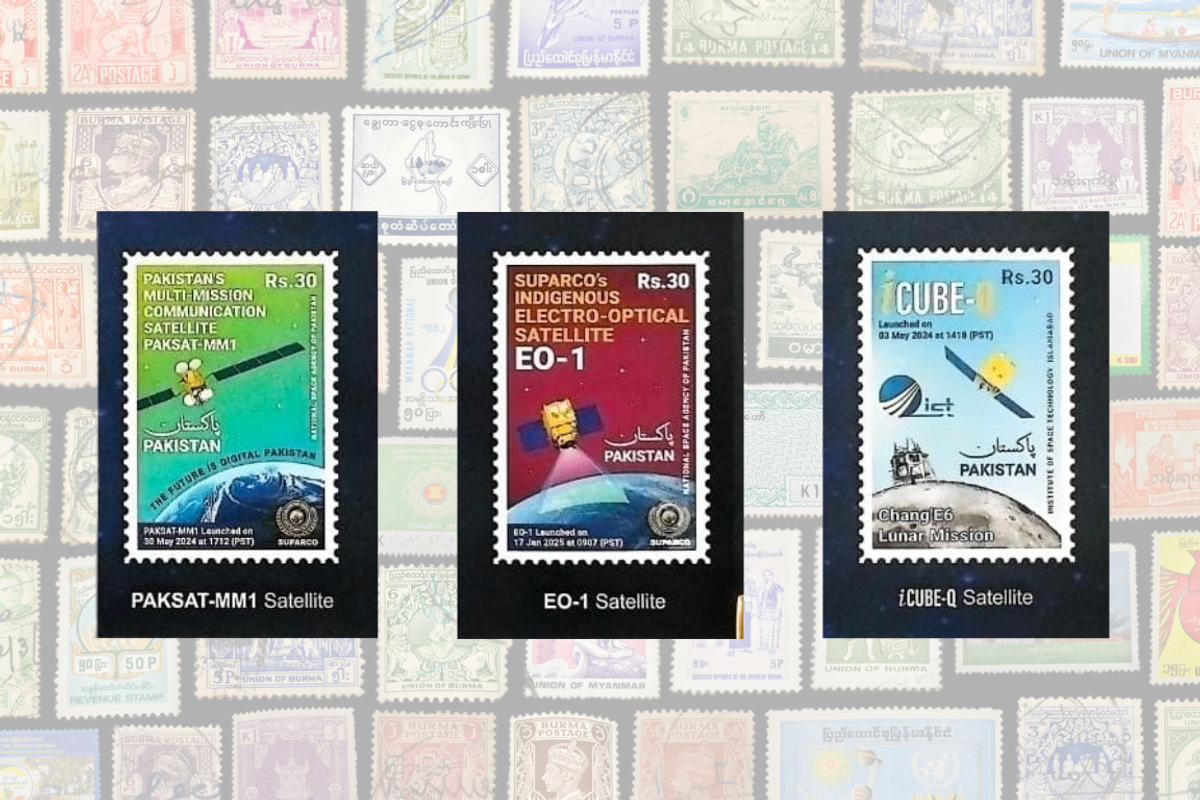News Desk
The News Desk provides timely and factual coverage of national and international events, with an emphasis on accuracy and clarity.

SUPARCO says these missions represent a transformative chapter in Pakistan’s journey toward space science and technology.
SUPARCO
Pakistan released a special series of commemorative postage stamps on Tuesday to mark SUPARCO Day, honoring the nation’s growing role in space exploration and celebrating milestone achievements in its space program.
The stamps, issued by Pakistan Post, spotlight three landmark missions led by the Space and Upper Atmosphere Research Commission (SUPARCO): iCube-Qamar, PAKSAT-MM1 and EO-1.
According to a SUPARCO spokesperson, these missions represent a transformative chapter in Pakistan’s journey toward space science and technology.
The iCube-Qamar, launched on May 3, 2024, as part of China’s Chang’E-6 mission, was Pakistan’s first lunar cube satellite. The miniature satellite successfully validated lunar orbit operations and transmitted images of both the Moon and the Sun.
A week after launch, on May 10, it relayed its first-ever lunar orbit images back to Earth - a breakthrough hailed by SUPARCO as a historic step for the country.
Following this, Pakistan launched PAKSAT-MM1 on May 30, 2024. This geostationary communication satellite has expanded the nation’s broadcasting, telecommunications, and internet capabilities, strengthening socio-economic development through improved connectivity across urban and rural regions.
The most recent milestone came on January 17, 2025, with the launch of Electro-Optical Satellite EO-1, Pakistan’s first indigenous Earth observation satellite.
EO-1 now provides high-resolution imagery for critical sectors such as agriculture, urban planning, environmental monitoring, and disaster management, enabling data-driven decision-making for national development.
According to SUPARCO, the commemorative stamps are not only a tribute to these landmark missions but also a symbolic recognition of Pakistan’s enduring progress in space science.
Officials noted that the iCube-Qamar mission was particularly significant, as it was part of a Chinese lunar probe aimed at retrieving samples from the far side of the Moon - a world-first in space exploration as China advances its ambitious goal of sending a crewed lunar mission by 2030.
Weighing just 7kg, the iCube-Qamar orbiter carried two optical cameras to survey the lunar surface. As a cube satellite, or cubesat, it was part of a new generation of cost-effective, compact satellites reshaping global space research.










Comments
See what people are discussing